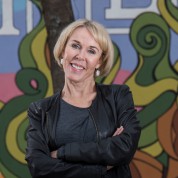WS303
Assuring Equitable Access to COVID19 Vaccines, Treatments, & Health Resources
Contact Person : Timothy Mastro, TMastro@fhi360.orgThe COVID-19 pandemic has provided a stark window into the how social and economic inequities result in disproportionate risk and impact of novel diseases. The chronic lack of access to basic health care prior to a pandemic results in populations more likely to be living with “pre-existing conditions” that make them more vulnerable to the most serious consequences of a novel infectious disease. This lack of effective health services in marginalized communities further increases their risks of negative outcomes during the pandemic. Economic inequities also profoundly reduce timely access to diagnostics and life-saving medicines (i.e. vaccines and therapies) – once they become available. This dynamic is particularly evident between resource “rich” and “poor” countries when it comes to accessing life-saving products that are in high demand when supplies are limited, including vaccines, therapeutics and personal protective equipment. These inequalities underscore the importance of universal health coverage in developing a uniformly healthy population before a pandemic, and mechanisms being in place for equitable provision of vaccines, therapies and PPEs during a pandemic. Moreover, vulerable populations will be impacted by pandemic induced impacts on education and nutrition programs. Topics to be discussed in this session include:
- Impact of inequitable access to basic health services on population health profile
- Global access to treatments and vaccines. How effective treatments and vaccines will be made available to everyone who needs them.
- The role of Universal Health Coverage in building: healthier populations (with fewer underlying conditions) that are less vulnerable to infectious disease threats; normative health systems and capacities that ensure delivery of critical services in the face of a pandemic
- How we ethically address access to therapeutics and vaccines? COVID vaccine development will be a major issue and there are also issues of the lack of ‘true partnership’ between funders and organizers around the world. How are major powers weighing in on this?
- How to ensure a unified global health approach, including access to education and nutriion, to address the most vulnerable in the world.
- How the growing power struggles between key countries on commodities affect equitable access to life saving interventions?
By participating in this webinar with global experts you will:
- Learn about the concerted effort to assure equitable global access to COVID19 vaccines and life-saving therapeutics
- Gain insight into the ethical considerations in rationing and prioritizing resources
- Understand the importance of nutrition, especially for vulnerable populations
SPEAKERS
Biosketch
Helen Rees
Kanchanok Sirison
Mercy Mwangangi
Purnima Menon
Supakit Sirilak
Timothy Mastro
Short Paper
Presentation
Menon_PPT.pdf
Mwangangi_PPT.pdf
Sirison_PPT.pdf







